.png)
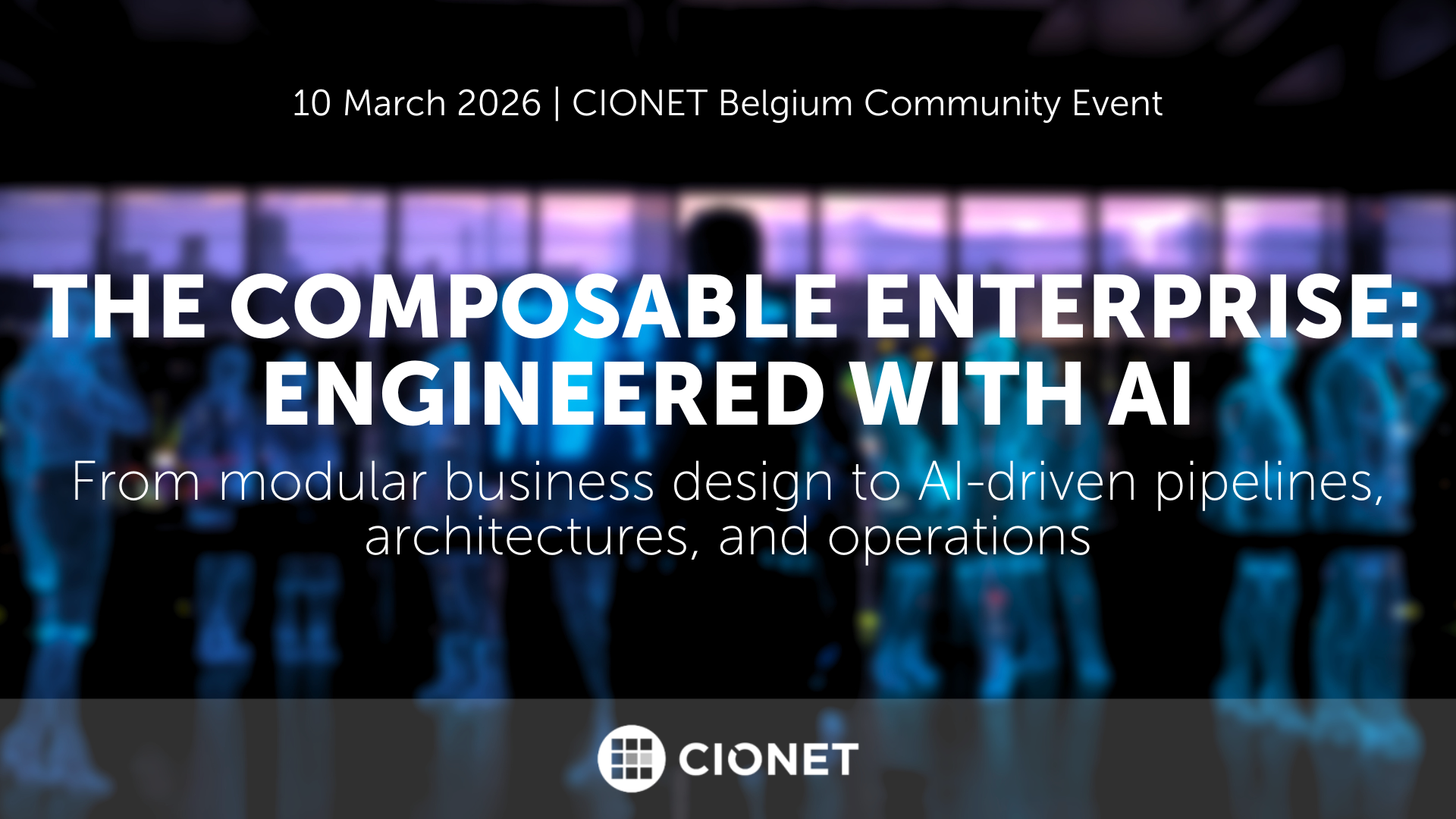
Belgium 10-3-26 All Members Physical english
From modular business design to AI-driven pipelines, architectures, and operationsA composable enterprise is built on modular processes, API-driven ecosystems, low-code platforms, and cloud-native services. It promises speed and adaptability by allowing organisations to reconfigure their capabilities as conditions change. However, modular design alone does not guarantee resilience; the way these systems are engineered and operated is just as important.This is where AI is beginning to make a difference. Beyond generating snippets of code, AI is already influencing how entire systems are developed and run: accelerating CI/CD pipelines, improving test coverage, optimising Infrastructure-as-Code, sharpening observability, and even shaping architectural decisions. These changes directly affect how quickly new business components can be deployed, connected, and retired.In this session, we will examine how CIOs can bring these two movements together:Composable design is the framework for flexibility and modularity.AI-augmented engineering is the force that delivers the speed, quality, and intelligence needed to sustain it.The pitfalls of treating them in isolation: composability that collapses under slow engineering cycles, or AI that only adds complexity without a modular structure.The discussion goes beyond concepts to practical implications: how to architect organisations that can be recomposed at speed, without losing control or reliability. The outcome is an enterprise that is not only modular in design but also engineered to adapt continuously under real-world conditions.
Read More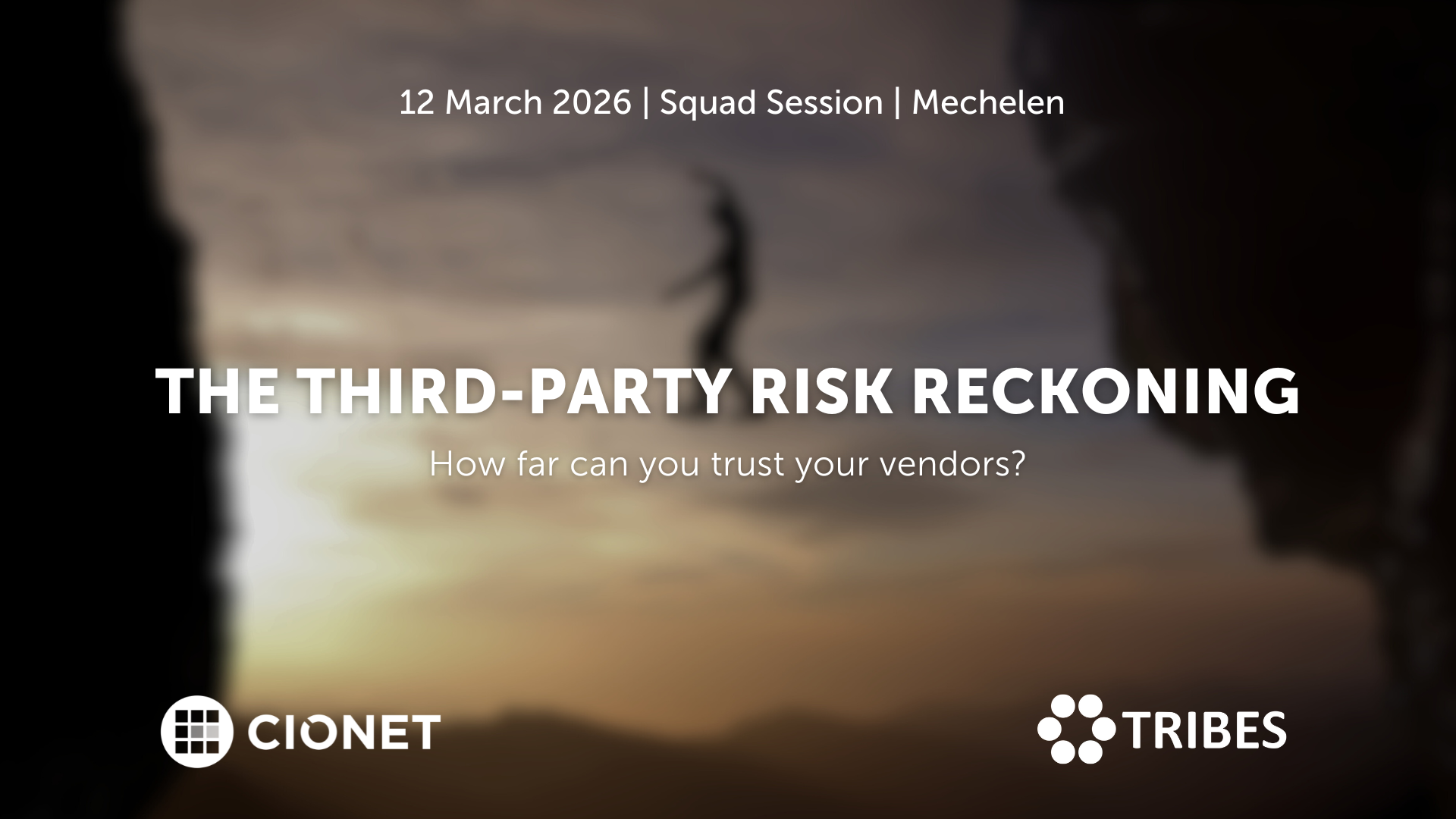
Belgium 12-3-26 Physical english
Tomato! Tomato! Tomato! Get your tomato now! Every vendor sells security. And every company depends on vendors, partners, and suppliers. The more digital the business becomes, the longer that list grows, and so does the attack surface. One weak link, and there is always one, or one missed update, and trust collapses faster than any firewall can react. What used to be a procurement checklist has become a full-time discipline. Questionnaires, audits, and endless documentation prove that everyone’s “compliant,” yet incidents keep happening. So it’s clear: the issue isn’t lack of policy, or maybe a bit, but mostly lack of visibility. Beyond a certain point, even the most secure organisation is only as safe as its least prepared partner (or an employee who hadn’t had their morning coffee). So how far can you trust your vendors? How do you check what you can’t control? And when does assurance become theatre instead of protection? Does it come at a different cost? Let’s exchange what works and what fails in third-party risk management: live monitoring, shared responsibility models, contractual levers, and the reality of building trust in a chain you don’t own. A closed conversation for those redefining what partnership means when risk is shared but accountability isn’t.
Read More.jpg)
Belgium 19-3-26 Country Members Physical french
Moins de Partenaires : La consolidation vaut-elle le risque ? Le problème est la prolifération des fournisseurs : trop d'outils causant de la complexité, une taxe d'intégration paralysante et de la redondance. La Taxe d'Intégration est le coût caché (en temps, en échecs et en ressources) d'essayer de faire fonctionner ensemble des systèmes disparates. Cet échange se concentre sur des stratégies éprouvées pour simplifier de manière agressive le parc technologique, consolider les fournisseurs et élever certains fournisseurs clés au rang de partenaires stratégiques.
Read More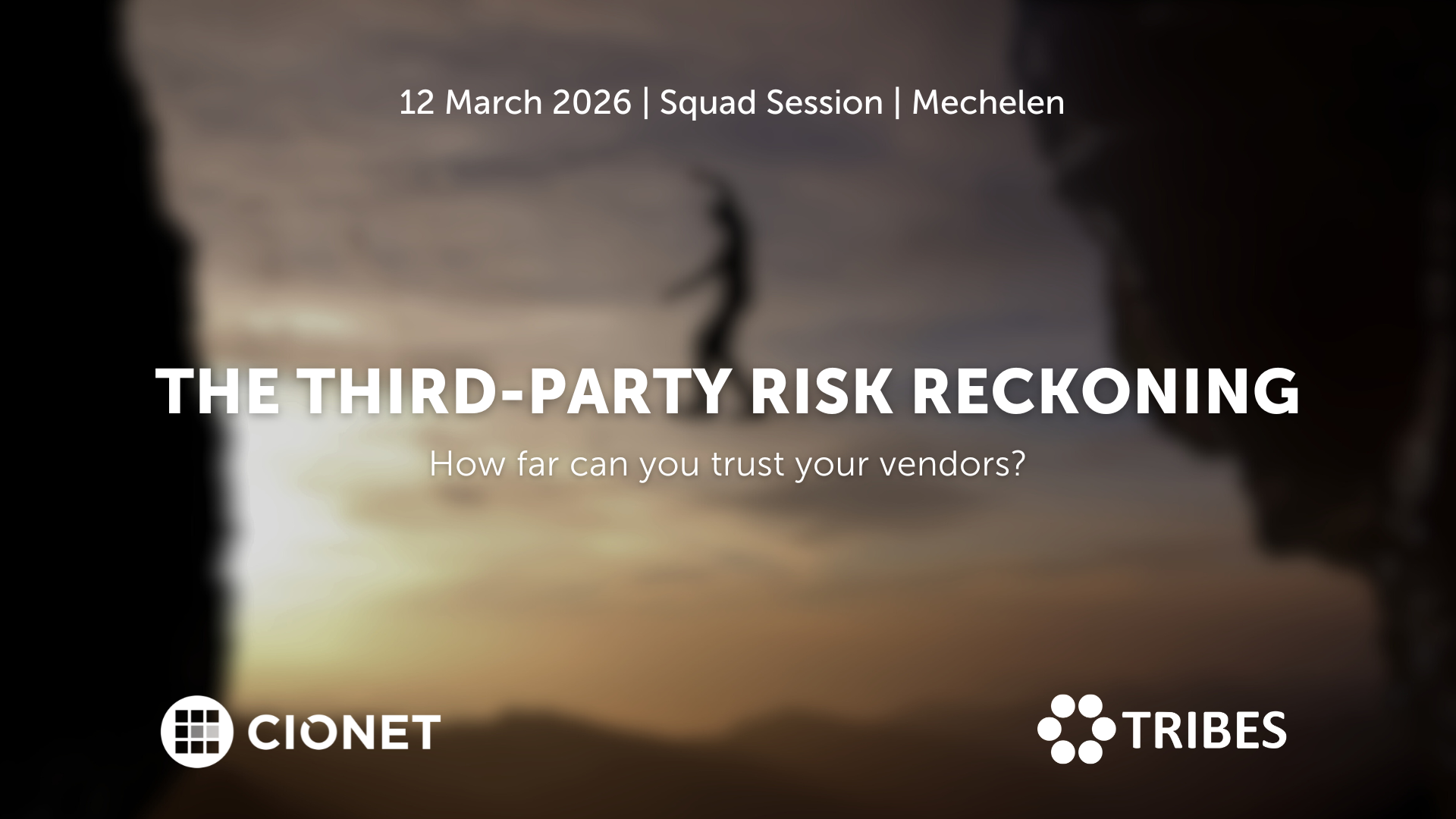
March 12, 2026 Squad Session Invitation Only Physical english
Tomato! Tomato! Tomato! Get your tomato now! Every vendor sells security. And every company depends on vendors, partners, and suppliers. The more digital the business becomes, the longer that list grows, and so does the attack surface. One weak link, and there is always one, or one missed update, and trust collapses faster than any firewall can react.
Read More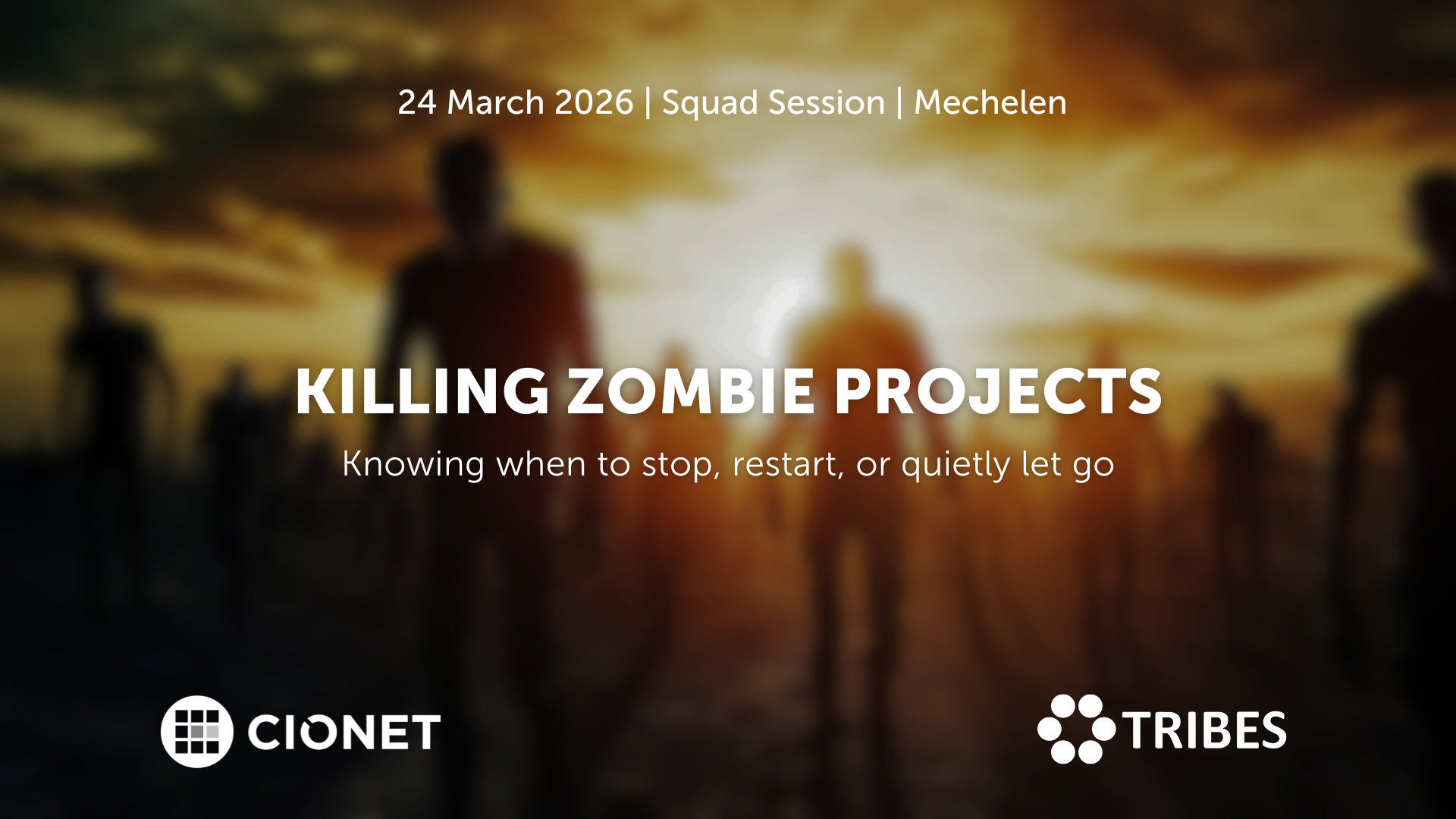
March 24, 2026 Squad Session Invitation Only Physical english
Every organisation has them, projects that keep running long after their purpose has faded. No one remembers who asked for them, but shutting them down feels riskier than keeping them alive. And eventually, people stay assigned, budgets stay allocated, and energy drains into work that no longer matters. Inertia at its finest.
Read More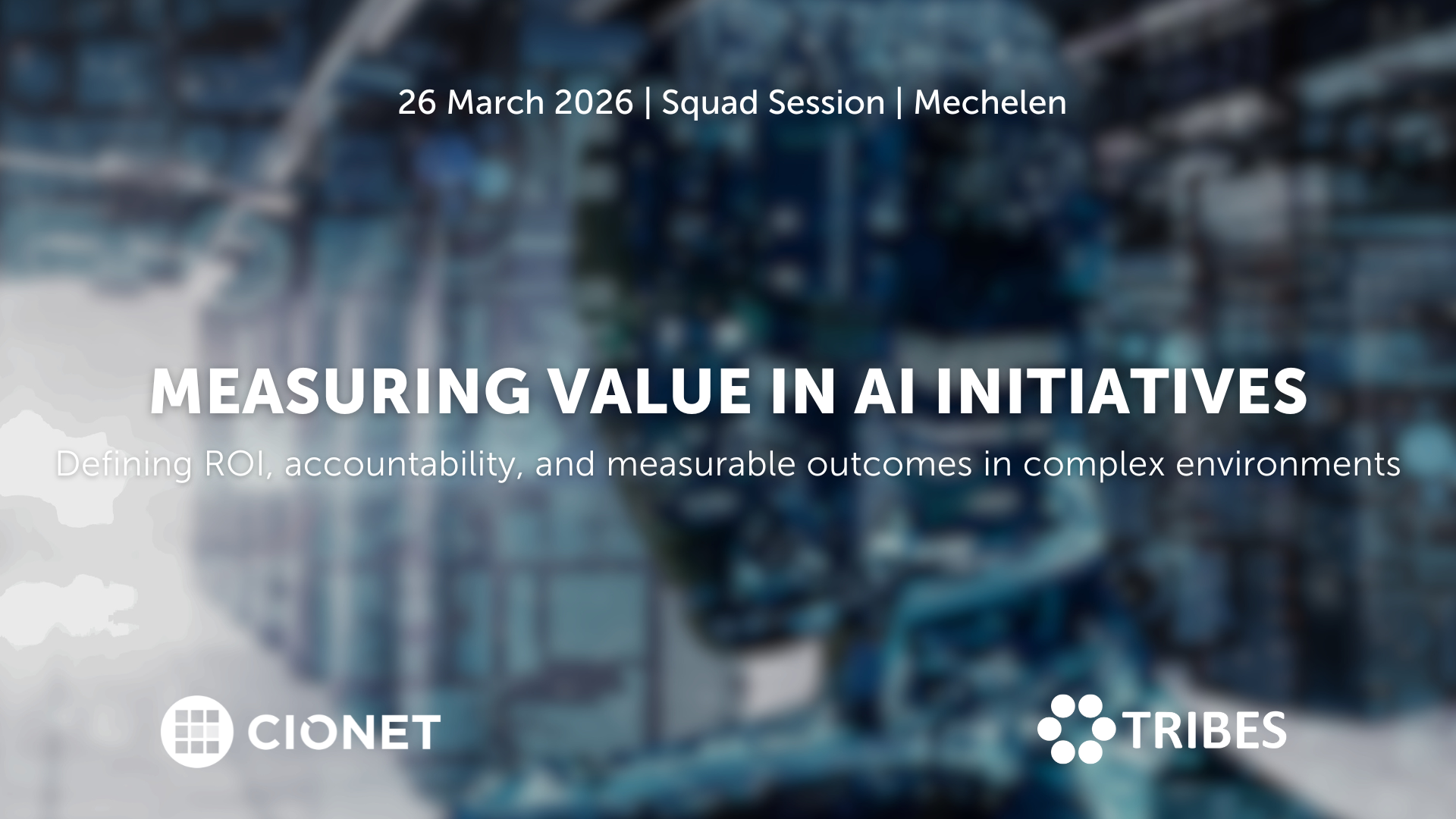
March 26, 2026 Squad Session Invitation Only Physical english
AI projects continue to multiply, but proving their value remains difficult. Most organisations can track activity, not impact. Dashboards count pilots and models, yet few translate to measurable business outcomes. The result is familiar: success stories without clarity on what they actually delivered.
Read More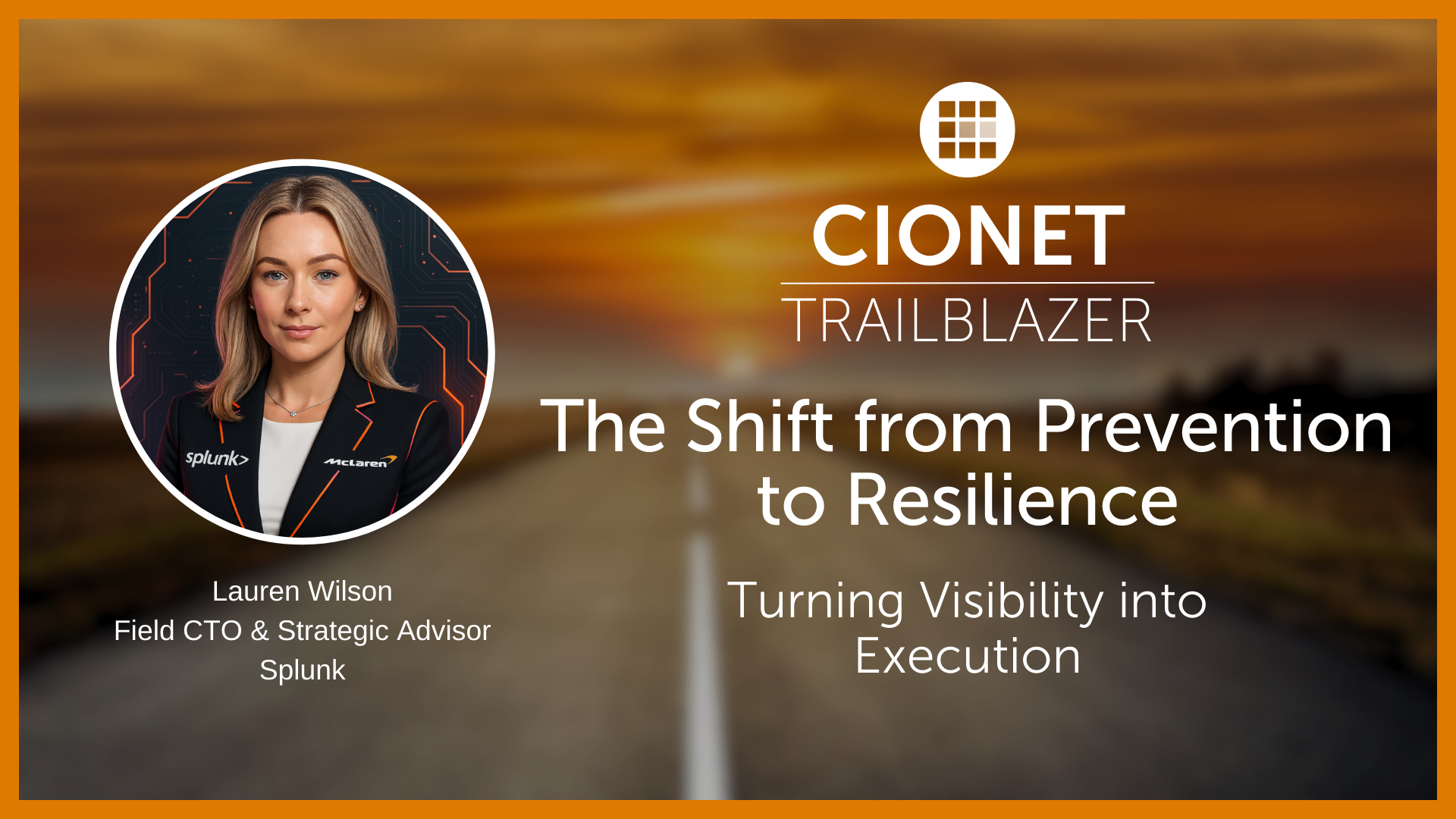
CIONET Trailblazer: CISO: The Shift from Prevention to Resilience: Turning Visibility into Execution
Published on: January 28, 2026 @ 9:48 AM
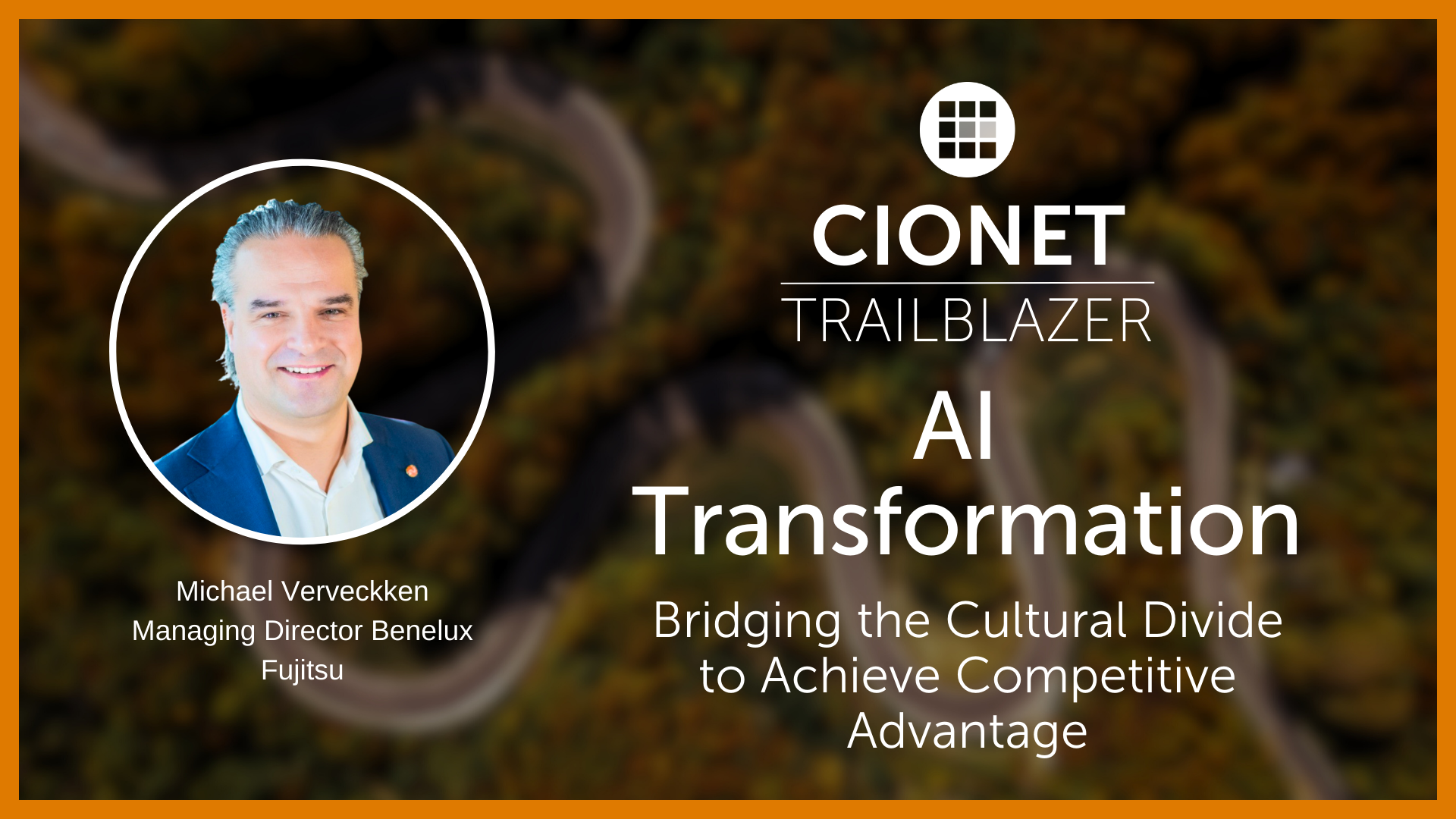
CIONET Trailblazer: AI Transformation: Bridging the Cultural Divide to Achieve Competitive Advantage
Published on: December 17, 2025 @ 9:16 AM
Boeing CIO Susan Doniz leads with curiosity and empathy
The aerospace giant’s IT chief takes a hands-on, people-centric approach to learning and transforming the business, seeking to inspire her IT teams to be the life-long learners necessary to thrive today.
Susan Doniz always knew she wanted to be in a “very people-oriented” career.
Initially drawn to medicine, Doniz found that in IT, starting with a 17-year stint working her way up the technology ranks at Procter & Gamble before becoming group CIO of Qantas Airways and later joining Boeing, where she currently serves as CIO, data analytics officer, and senior vice president of IT and data analytics.
That success in IT leadership she attributes largely to a strong sense of curiosity cultivated while growing up in Spain and living throughout Latin America.
Her curiosity — and affinity for design thinking — is driven by a desire to “truly understand things and the way they work,” she says, rather than just taking someone else’s word for it.
To that end, Doniz jumped into her role at Boeing by gaining hands-on experience in the factory so she could fully understand the multinational aerospace manufacturer’s business. Today, she works closely with IT interns who are “in front of everything every single day” as part of her commitment to spend time with not only other leaders and executives but also employees, interns, and others throughout IT and the organization at large.
Moreover, connecting with people, finding out what motivates them, what their aspirations are, Doniz works hard to put herself “in their shoes,” something she says is particularly important as you climb the leadership ladder, because “the more senior you become, the more obfuscated what’s really happening becomes to you, because things go through so many layers.
At Boeing, Doniz takes a product-based approach to IT, in which employees aren’t simply assigned projects and told exactly what to do, but focus on “the outcomes and the business processes that they support,” she says, adding that the product model empowers employees to feel ownership over their work, which is more engaging than just being assigned tasks with no context or goals surrounding them.
“Giving people not just the tools, but the ability to make the decisions that they want to make, and to take away the bureaucracy, or any non-value-added work that gets in their way, is really what motivates them,” she says. “Allowing people to do their best work or giving them autonomy and decision-making rights is so important, because people will leave if they can’t do the work.”That emphasis on job satisfaction and talent retention at Boeing is further enforced by a strong focus on training and career development. Investing in management training to ensure managers are equipped to lead effectively is a key emphasis for Doniz, who also acknowledges that management isn’t the path for everyone. For those who want to remain on a technical track, Boeing offers clear pathways to alternative career trajectories to ensure employees can grow their careers without having to make the shift to management.
The company’s Technical Fellowship program helps to foster the skills of Boeing’s technical workers. The program includes three main levels: Associate Technical Fellow, Technical Fellow, and Senior Technical Fellow, which is a director-level position. But employees can also advance to Principal Senior Technical Fellow, a senior director role, and Distinguished Senior Technical Fellow, at the vice president level.
This alternate advancement path allows Boeing to retain top talent and subject matter experts without the risk of losing them to other corporations in the name of career growth. And in the aerospace industry, subject matter experts are uniquely critical to the success of the business.
“We need experts that are deep experts in AI, data analytics, and cloud. In order to launch things into outer space, and to look at the data that we have coming off from an aircraft — which is literally terabytes of data — you need some pretty heavy-duty technical skills. Those people might not want to be management, and that’s okay,” says Doniz.
The two-career path approach helps Boeing “empower [employees] to do their best work” and contribute to the overall mission of the company while reducing churn, Doniz says.
In leading Boeing IT and data analytics, Doniz believes translating her love of learning into an organization-wide culture of curiosity is vital for navigating the rapid pace of change in technology — and technology adoption — today. Doniz points to the adoption rates of past technologies, noting how the iPhone was adopted faster than the television, and compares that to current technologies such as generative AI, which was adopted even faster.
“We live in a world full of change,” says Doniz, and that requires technologists to be agile, curious, and life-long learners. “You have to be very adaptable, and pivot very quickly.”
Change isn’t a “one act show,” Doniz adds, emphasizing that those in the IT industry must remain committed to life-long learning, because “you have to constantly be learning new things.”
“I’m constantly reskilling myself and upskilling myself,” she says, “learning about new technologies, working with peers, going to conferences, seeing what people have out there, and being inspired by other businesses and what they’ve done.”
That commitment to life-long learning is an ethos that needs to be encouraged and supported through the entire organization, Doniz says, which means having the right resources in place to support and motivate the natural curiosity of employees.
“We need to provide the means where they can invest, and I’ve never seen a company that allows you to invest so much in learning — you can study anything and Boeing will support you on it,” she says.
That also means giving employees opportunities to gain new experiences on the job by putting engaged and motivated employees into reach roles, which helps grow their skills and confidence, while helping the organization keep pace with technology and skills demand.
“I’m sure you can’t find anybody that has two years of generative AI experience because there’s not a lot of people that have that. So we have to lean forward,” Doniz says. “For people who have shown that they’re curious, and can deliver, and can learn, then we make sure that we’re giving them new opportunities. And I think that’s so important, to take chances and to give people opportunities to show what they can do in new areas of technology, because that’s how you learn — through doing."
For Doniz, the keys to inspiring a workforce is to genuinely care about the individual satisfaction and happiness of each employee, and to be invested in the organization’s overall success as well.
“I really want people to be successful and so putting people in the middle of everything and understanding what motivates them, and being genuinely curious and genuinely caring, which sometimes means giving them the hard messages, but in a way that is caring, I think is what helps me connect but also to be successful with my teams as well,” she says.
Growing up, Doniz never considered a career in technology and knows that there are many people who feel they “don’t have the skills or grew up in a place where they didn’t have the resources to learn” about technology. But she believes that technology is more than “being curious about how a computer works”; it’s “really about people.” “I would just encourage more people to consider careers in technology, because you can’t be a good technologist without being very interested in every process from finance, to marketing, to manufacturing, and I feel like I’ve been able to almost do every single career because I support technology. And I might not have thought of that as a girl growing up.”
176 Views 0 Likes Read More

Digital Transformation is redefining the future of health care and health delivery. All stakeholders are convinced that these innovations will create value for patients, healthcare practitioners, hospitals, and governments along the patient pathway. The benefits are starting from prevention and awareness to diagnosis, treatment, short- and long-term follow-up, and ultimately survival. But how do you make sure that your working towards an architecturally sound, secure and interoperable health IT ecosystem for your hospital and avoid implementing a hodgepodge of spot solutions? How does your IT department work together with the other stakeholders, such as the doctors and other healthcare practitioners, Life Sciences companies, Tech companies, regulators and your internal governance and administrative bodies?
Read More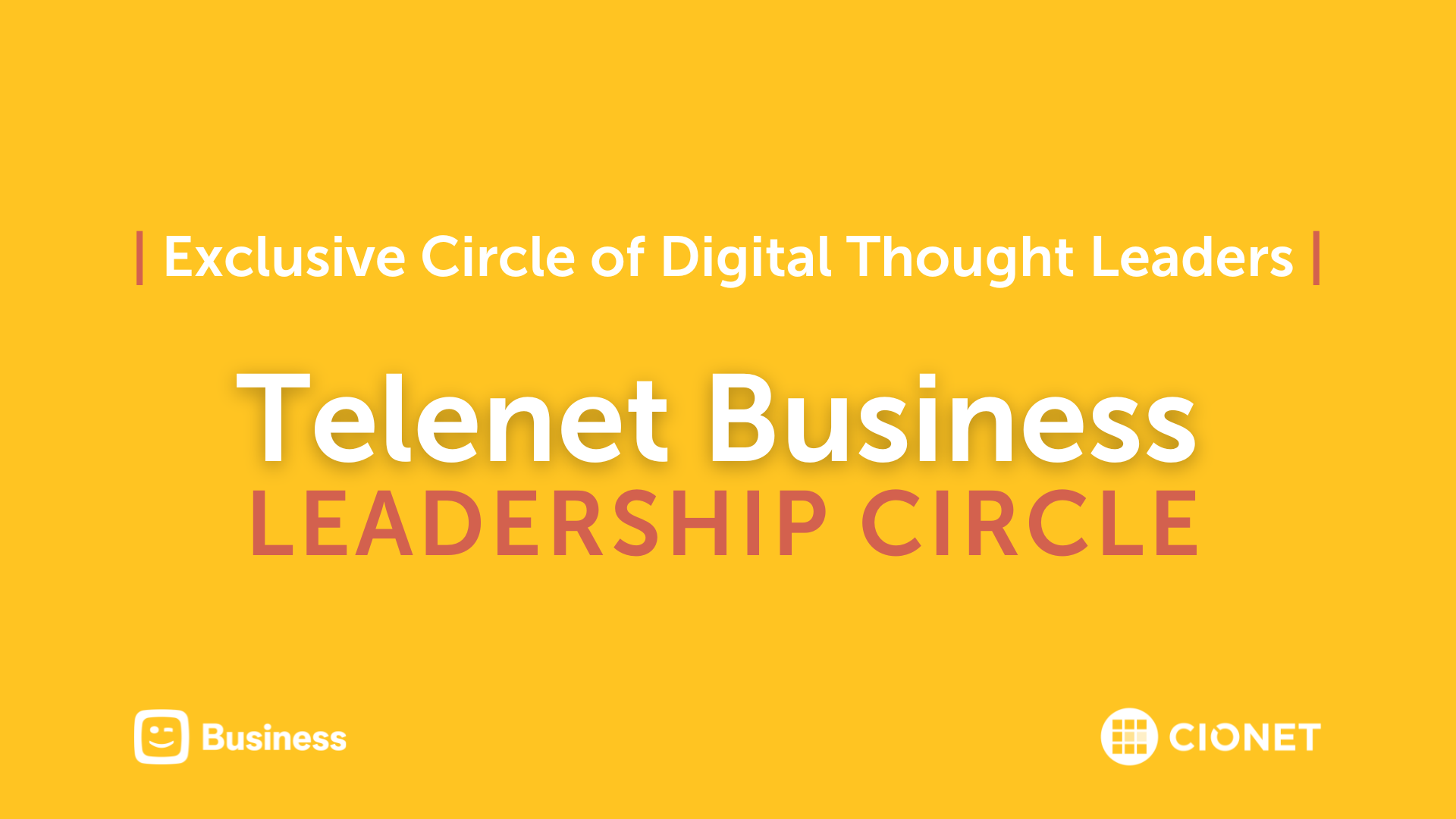
The Telenet Business Leadership Circle powered by CIONET, offers a platform where IT executives and thought leaders can meet to inspire each other and share best practices. We want to be a facilitator who helps you optimise the performance of your IT function and your business by embracing the endless opportunities that digital change brings.
Read More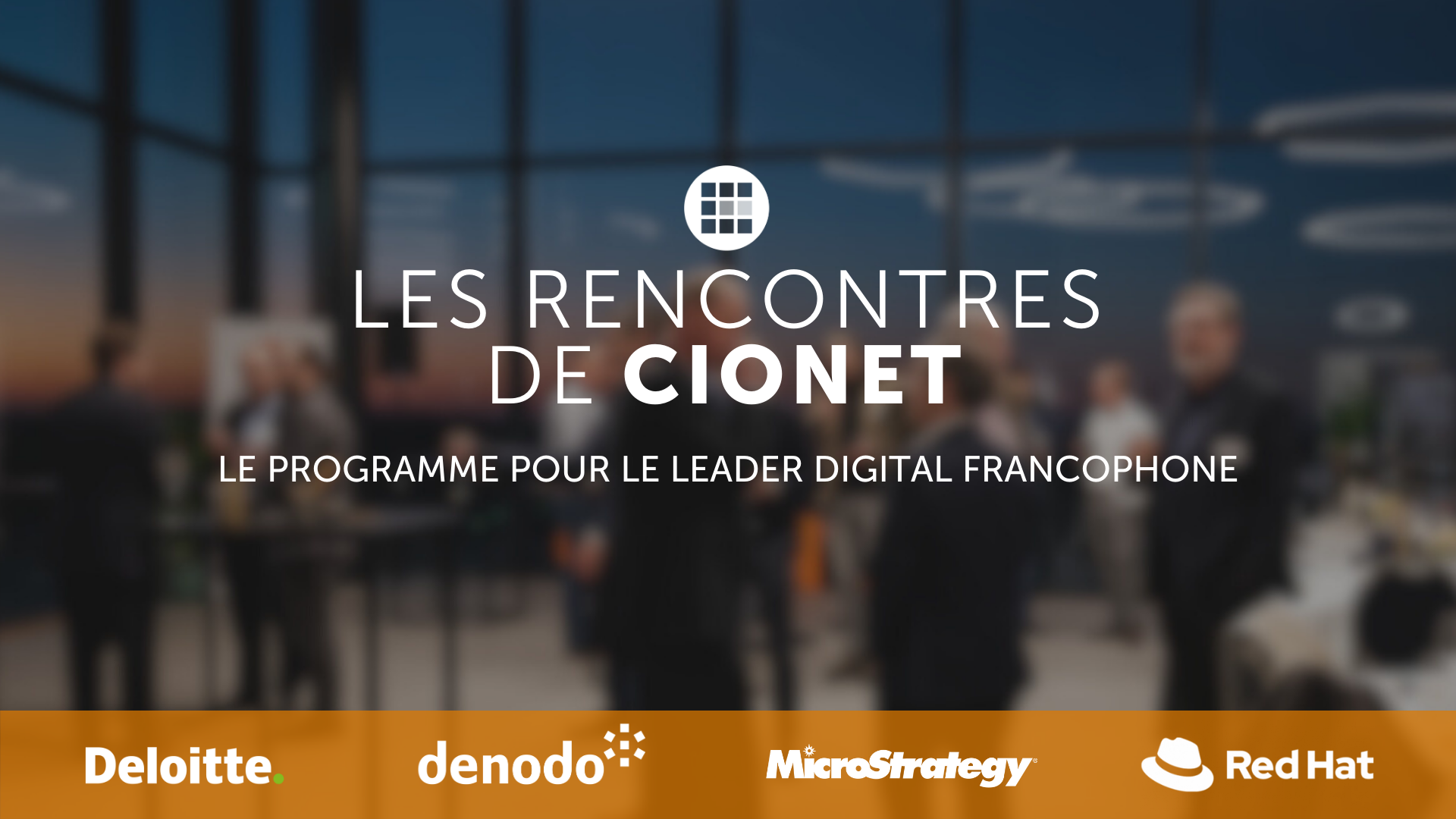
Découvrez la dynamique du leadership numérique aux Rencontres de CIONET, le programme francophone exclusif de CIONET pour les leaders numériques en Belgique, rendu possible grâce au soutien et à l'engagement de nos partenaires de programme : Deloitte, Denodo et Red Hat. Rejoignez trois événements inspirants par an à Liège, Namur et en Brabant Wallon, où des CIOs et des experts numériques francophones de premier plan partagent leurs perspectives et expériences sur des thèmes d'affaires et de IT actuels. Laissez-vous inspirer et apprenez des meilleurs du secteur lors de sessions captivantes conçues spécialement pour soutenir et enrichir votre rôle en tant que CIO pair. Ne manquez pas cette opportunité de faire partie d'un réseau exceptionnel d'innovateurs numériques !
Read More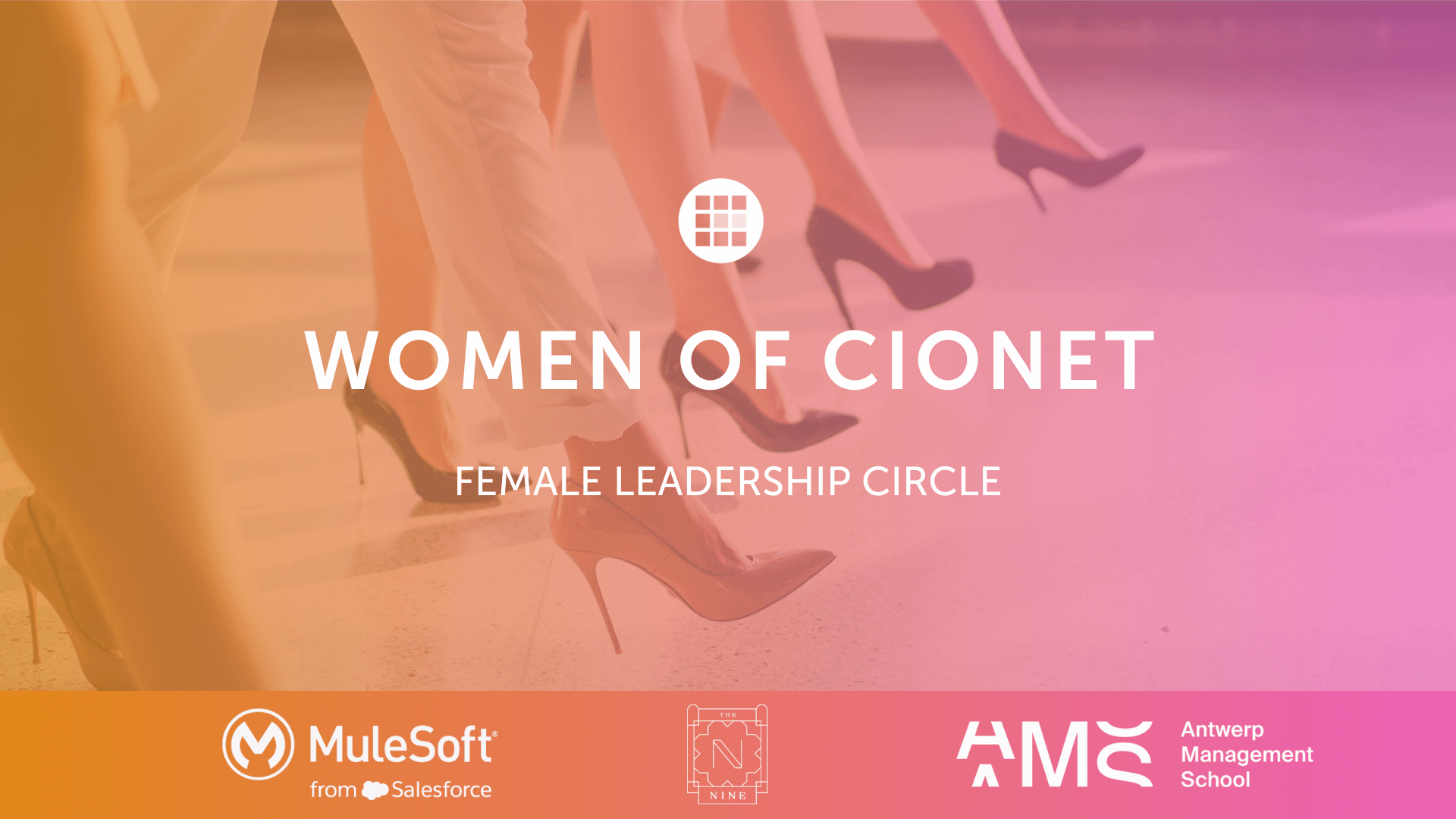
CIONET is committed to highlighting and celebrating female role models in IT, Tech & Digital, creating a leadership programme that empowers and elevates women within the tech industry. This initiative is dedicated to showcasing the achievements and successes of leading women, fostering an environment where female role models are recognised, and their contributions can ignite progress and inspire the next generation of women in IT. Our mission is to shine the spotlight a little brighter on female role models in IT, Tech & Digital, and to empower each other through this inner network community.
Read More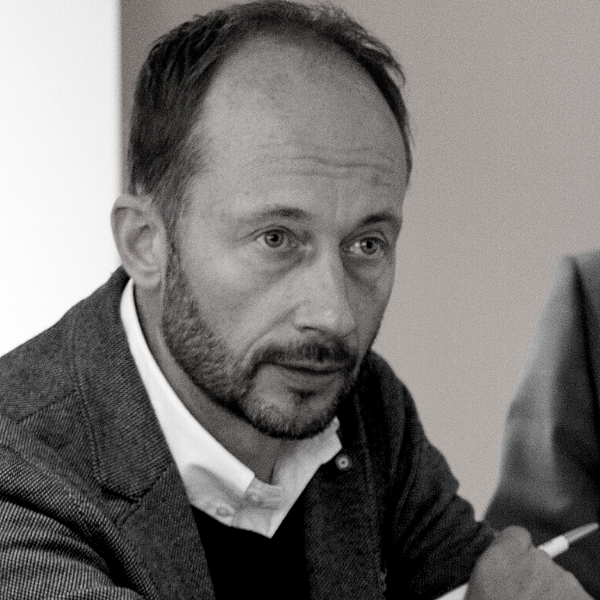


-Apr-01-2022-10-58-34-57-AM.png)



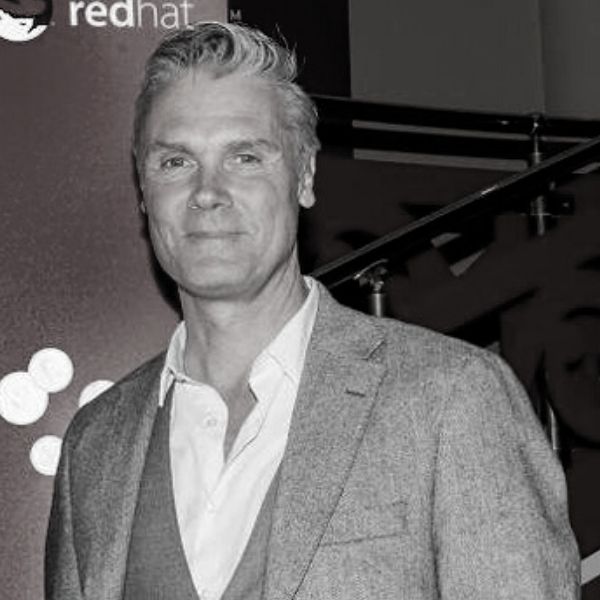

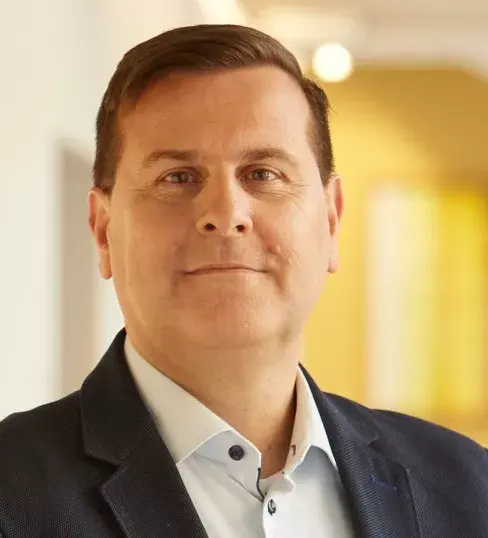
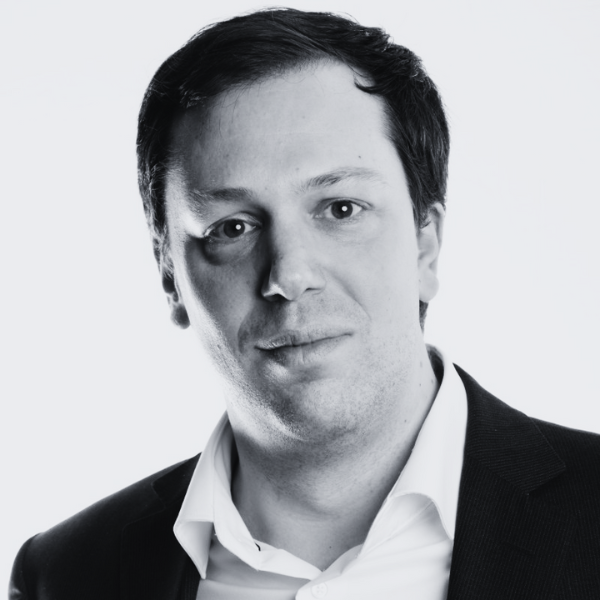

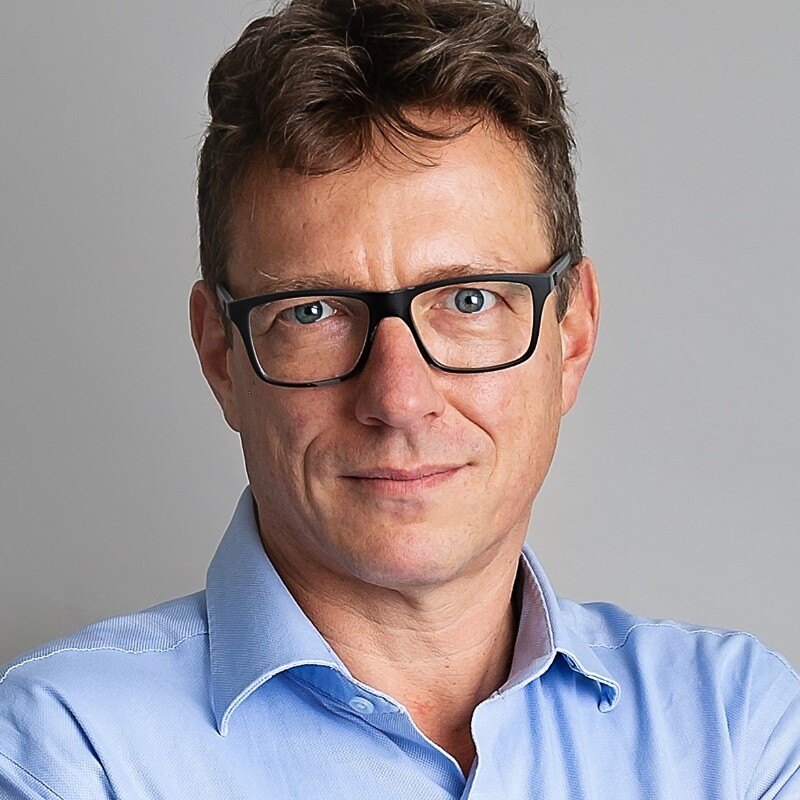
-Dec-13-2023-10-53-15-5032-AM.png)
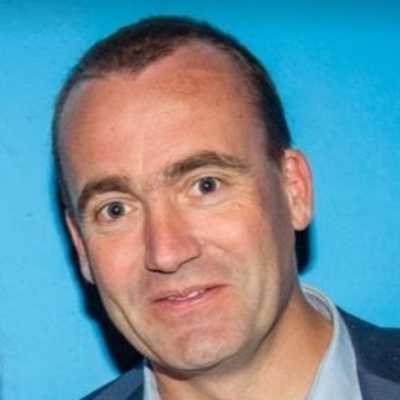
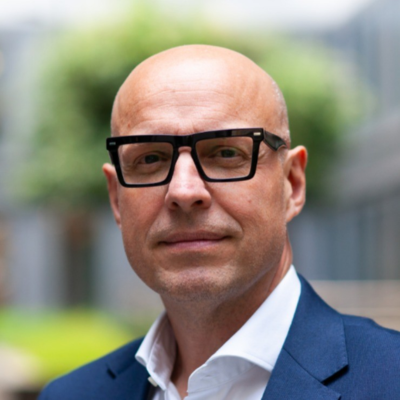

-Jun-12-2023-01-23-11-7540-PM.png)

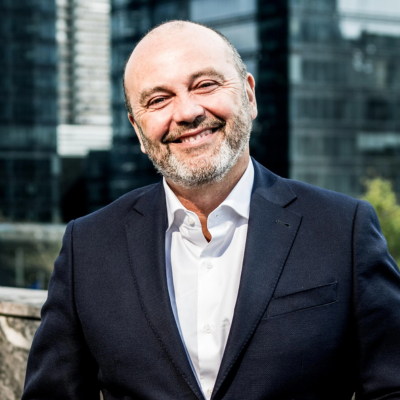

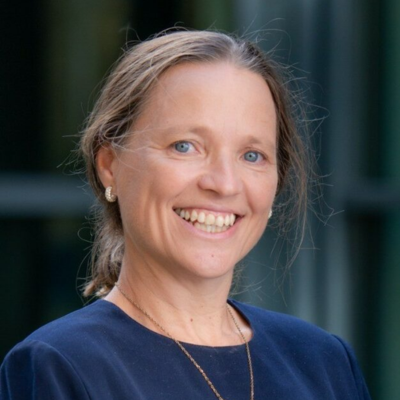
-Apr-01-2022-10-58-34-68-AM.png)

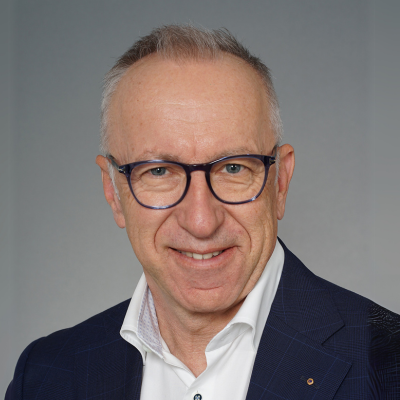
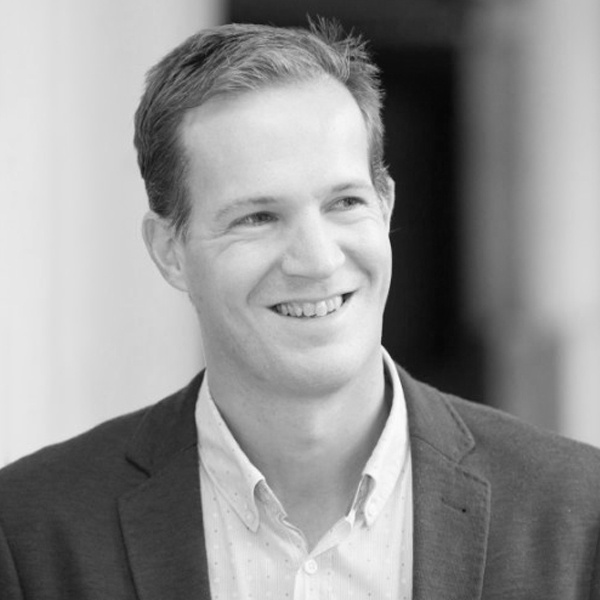
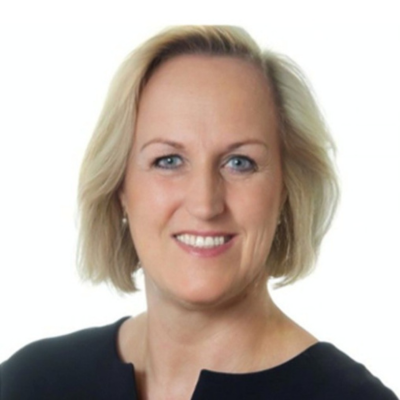

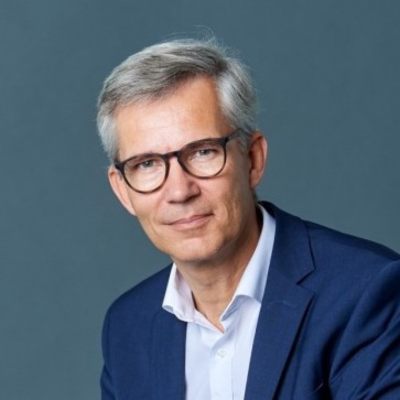
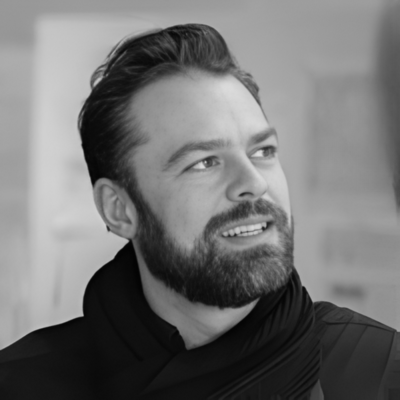

.png)
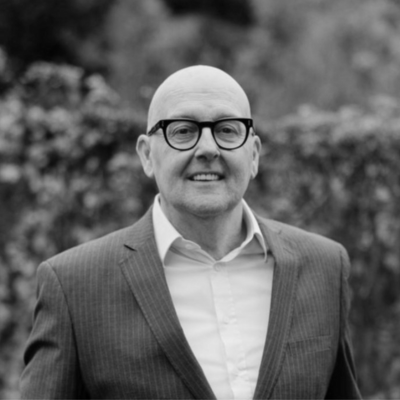

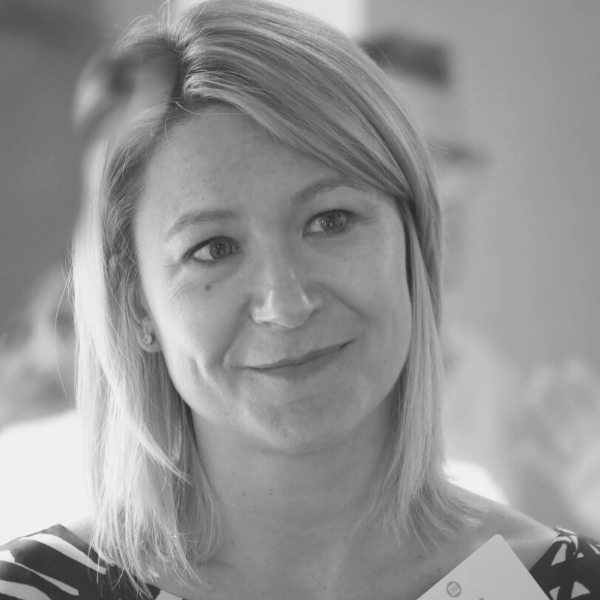




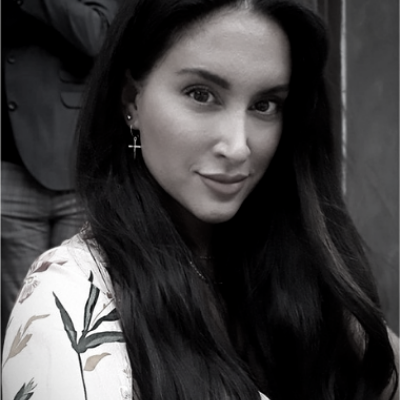

-Sep-01-2022-02-47-55-60-PM.png)
-Nov-22-2023-08-56-42-6802-AM.png)
.png)

Would you like to know more about CIONET Belgium, membership or partnership opportunities? Do you have feedback or any other question? Send us a message!
You can either send us a registered handwritten letter explaining why you'd like to become a member or you can simply talk to us right here!